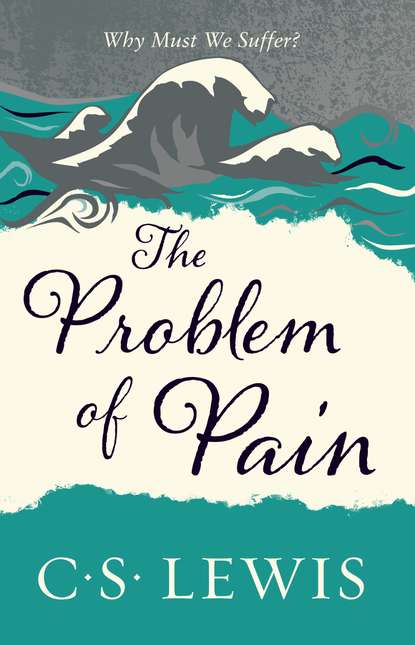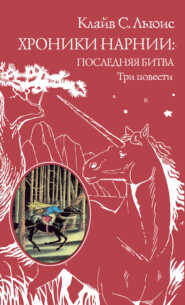По всем вопросам обращайтесь на: info@litportal.ru
(©) 2003-2024.
✖
The Problem of Pain
Настройки чтения
Размер шрифта
Высота строк
Поля
But if matter is to serve as a neutral field it must have a fixed nature of its own. If a ‘world’ or material system had only a single inhabitant it might conform at every moment to his wishes—‘trees for his sake would crowd into a shade’. But if you were introduced into a world which thus varied at my every whim, you would be quite unable to act in it and would thus lose the exercise of your free will. Nor is it clear that you could make your presence known to me—all the matter by which you attempted to make signs to me being already in my control and therefore not capable of being manipulated by you.
Again, if matter has a fixed nature and obeys constant laws, not all states of matter will be equally agreeable to the wishes of a given soul, nor all equally beneficial for that particular aggregate of matter which he calls his body. If fire comforts that body at a certain distance, it will destroy it when the distance is reduced. Hence, even in a perfect world, the necessity for those danger signals which the pain-fibres in our nerves are apparently designed to transmit. Does this mean an inevitable element of evil (in the form of pain) in any possible world? I think not: for while it may be true that the least sin is an incalculable evil, the evil of pain depends on degree, and pains below a certain intensity are not feared or resented at all. No one minds the process ‘warm—beautifully hot—too hot—it stings’ which warns him to withdraw his hand from exposure to the fire: and, if I may trust my own feeling, a slight aching in the legs as we climb into bed after a good day’s walking is, in fact, pleasurable.
Yet again, if the fixed nature of matter prevents it from being always, and in all its dispositions, equally agreeable even to a single soul, much less is it possible for the matter of the universe at any moment to be distributed so that it is equally convenient and pleasurable to each member of a society. If a man travelling in one direction is having a journey down hill, a man going in the opposite direction must be going up hill. If even a pebble lies where I want it to lie, it cannot, except by a coincidence, be where you want it to lie. And this is very far from being an evil: on the contrary, it furnishes occasion for all those acts of courtesy, respect, and unselfishness by which love and good humour and modesty express themselves. But it certainly leaves the way open to a great evil, that of competition and hostility. And if souls are free, they cannot be prevented from dealing with the problem by competition instead of courtesy. And once they have advanced to actual hostility, they can then exploit the fixed nature of matter to hurt one another. The permanent nature of wood which enables us to use it as a beam also enables us to use it for hitting our neighbour on the head. The permanent nature of matter in general means that when human beings fight, the victory ordinarily goes to those who have superior weapons, skill, and numbers, even if their cause is unjust.
We can, perhaps, conceive of a world in which God corrected the results of this abuse of free will by His creatures at every moment: so that a wooden beam became soft as grass when it was used as a weapon, and the air refused to obey me if I attempted to set up in it the sound-waves that carry lies or insults. But such a world would be one in which wrong actions were impossible, and in which, therefore, freedom of the will would be void; nay, if the principle were carried out to its logical conclusion, evil thoughts would be impossible, for the cerebral matter which we use in thinking would refuse its task when we attempted to frame them. All matter in the neighbourhood of a wicked man would be liable to undergo unpredictable alterations. That God can and does, on occasions, modify the behaviour of matter and produce what we call miracles, is part of Christian faith; but the very conception of a common, and therefore stable, world, demands that these occasions should be extremely rare. In a game of chess you can make certain arbitrary concessions to your opponent, which stand to the ordinary rules of the game as miracles stand to the laws of nature. You can deprive yourself of a castle, or allow the other man sometimes to take back a move made inadvertently. But if you conceded everything that at any moment happened to suit him—if all his moves were revocable and if all your pieces disappeared whenever their position on the board was not to his liking—then you could not have a game at all. So it is with the life of souls in a world: fixed laws, consequences unfolding by causal necessity, the whole natural order, are at once limits within which their common life is confined and also the sole condition under which any such life is possible. Try to exclude the possibility of suffering which the order of nature and the existence of free wills involve, and you find that you have excluded life itself.
As I said before, this account of the intrinsic necessities of a world is meant merely as a specimen of what they might be. What they really are, only Omniscience has the data and the wisdom to see: but they are not likely to be less complicated than I have suggested. Needless to say, ‘complicated’ here refers solely to the human understanding of them; we are not to think of God arguing, as we do, from an end (co-existence of free spirits) to the conditions involved in it, but rather of a single, utterly self-consistent act of creation which to us appears, at first sight, as the creation of many independent things, and then, as the creation of things mutually necessary. Even we can rise a little beyond the conception of mutual necessities as I have outlined it—can reduce matter as that which separates souls and matter as that which brings them together under the single concept of Plurality, whereof ‘separation’ and ‘togetherness’ are only two aspects. With every advance in our thought the unity of the creative act, and the impossibility of tinkering with the creation as though this or that element of it could have been removed, will become more apparent. Perhaps this is not the ‘best of all possible’ universes, but the only possible one. Possible worlds can mean only ‘worlds that God could have made, but didn’t’. The idea of that which God ‘could have’ done involves a too anthropomorphic conception of God’s freedom. Whatever human freedom means, Divine freedom cannot mean indeterminacy between alternatives and choice of one of them. Perfect goodness can never debate about the end to be attained, and perfect wisdom cannot debate about the means most suited to achieve it. The freedom of God consists in the fact that no cause other than Himself produces His acts and no external obstacle impedes them—that His own goodness is the root from which they all grow and His own omnipotence the air in which they all flower.
And that brings us to our next subject—the Divine goodness. Nothing so far has been said of this, and no answer attempted to the objection that if the universe must, from the outset, admit the possibility of suffering, then absolute goodness would have left the universe uncreated. And I must warn the reader that I shall not attempt to prove that to create was better than not to create: I am aware of no human scales in which such a portentous question can be weighed. Some comparison between one state of being and another can be made, but the attempt to compare being and not being ends in mere words. ‘It would be better for me not to exist’—in what sense ‘for me’? How should I, if I did not exist, profit by not existing? Our design is a less formidable one: it is only to discover how, perceiving a suffering world, and being assured, on quite different grounds, that God is good, we are to conceive that goodness and that suffering without contradiction.
3 DIVINE GOODNESS (#ulink_19744635-dac6-5882-9a77-d7b3acd11114)
Love can forbear, and Love can forgive…but Love can never be reconciled to an unlovely object…. He can never therefore be reconciled to your sin, because sin itself is incapable of being altered; but He may be reconciled to your person, because that may be restored.
TRAHERNE,
Centuries of Meditation, II, 30
Any consideration of the goodness of God at once threatens us with the following dilemma.
On the one hand, if God is wiser than we His judgement must differ from ours on many things, and not least on good and evil. What seems to us good may therefore not be good in His eyes, and what seems to us evil may not be evil.
On the other hand, if God’s moral judgement differs from ours so that our ‘black’ may be His ‘white’, we can mean nothing by calling Him good; for to say ‘God is good’, while asserting that His goodness is wholly other than ours, is really only to say ‘God is we know not what’. And an utterly unknown quality in God cannot give us moral grounds for loving or obeying Him. If He is not (in our sense) ‘good’ we shall obey, if at all, only through fear—and should be equally ready to obey an omnipotent Fiend. The doctrine of Total Depravity—when the consequence is drawn that, since we are totally depraved, our idea of good is worth simply nothing—may thus turn Christianity into a form of devil-worship.
The escape from this dilemma depends on observing what happens, in human relations, when the man of inferior moral standards enters the society of those who are better and wiser than he and gradually learns to accept their standards—a process which, as it happens, I can describe fairly accurately, since I have undergone it. When I came first to the University I was as nearly without a moral conscience as a boy could be. Some faint distaste for cruelty and for meanness about money was my utmost reach—of chastity, truthfulness, and self-sacrifice I thought as a baboon thinks of classical music. By the mercy of God I fell among a set of young men (none of them, by the way, Christians) who were sufficiently close to me in intellect and imagination to secure immediate intimacy, but who knew, and tried to obey, the moral law. Thus their judgement of good and evil was very different from mine. Now what happens in such a case is not in the least like being asked to treat as ‘white’ what was hitherto called black. The new moral judgements never enter the mind as mere reversals (though they do reverse them) of previous judgements but ‘as lords that are certainly expected’. You can have no doubt in which direction you are moving: they are more like good than the little shreds of good you already had, but are, in a sense, continuous with them. But the great test is that the recognition of the new standards is accompanied with the sense of shame and guilt: one is conscious of having blundered into society that one is unfit for. It is in the light of such experiences that we must consider the goodness of God. Beyond all doubt, His idea of ‘goodness’ differs from ours; but you need have no fear that, as you approach it, you will be asked simply to reverse your moral standards. When the relevant difference between the Divine ethics and your own appears to you, you will not, in fact, be in any doubt that the change demanded of you is in the direction you already call ‘better’. The Divine ‘goodness’ differs from ours, but it is not sheerly different: it differs from ours not as white from black but as a perfect circle from a child’s first attempt to draw a wheel. But when the child has learned to draw, it will know that the circle it then makes is what it was trying to make from the very beginning.
This doctrine is presupposed in Scripture. Christ calls men to repent—a call which would be meaningless if God’s standards were sheerly different from that which they already knew and failed to practise. He appeals to our existing moral judgement—‘Why even of yourselves judge ye not what is right?’
God in the Old Testament expostulates with men on the basis of their own conceptions of gratitude, fidelity, and fair play: and puts Himself, as it were, at the bar before His own creatures—‘What iniquity have your fathers found in me, that they are gone far from me?’
After these preliminaries it will, I hope, be safe to suggest that some conceptions of the Divine goodness which tend to dominate our thought, though seldom expressed in so many words, are open to criticism.
By the goodness of God we mean nowadays almost exclusively His lovingness; and in this we may be right. And by Love, in this context, most of us mean kindness—the desire to see others than the self happy; not happy in this way or in that, but just happy. What would really satisfy us would be a God who said of anything we happened to like doing, ‘What does it matter so long as they are contented?’ We want, in fact, not so much a Father in Heaven as a grandfather in heaven—a senile benevolence who, as they say, ‘liked to see young people enjoying themselves’, and whose plan for the universe was simply that it might be truly said at the end of each day, ‘a good time was had by all’. Not many people, I admit, would formulate a theology in precisely those terms: but a conception not very different lurks at the back of many minds. I do not claim to be an exception: I should very much like to live in a universe which was governed on such lines. But since it is abundantly clear that I don’t, and since I have reason to believe, nevertheless, that God is Love, I conclude that my conception of love needs correction.
I might, indeed, have learned, even from the poets, that Love is something more stern and splendid than mere kindness: that even the love between the sexes is, as in Dante, ‘a lord of terrible aspect’. There is kindness in Love: but Love and kindness are not coterminous, and when kindness (in the sense given above) is separated from the other elements of Love, it involves a certain fundamental indifference to its object, and even something like contempt of it. Kindness consents very readily to the removal of its object—we have all met people whose kindness to animals is constantly leading them to kill animals lest they should suffer. Kindness, merely as such, cares not whether its object becomes good or bad, provided only that it escapes suffering. As Scripture points out, it is bastards who are spoiled: the legitimate sons, who are to carry on the family tradition, are punished.
It is for people whom we care nothing about that we demand happiness on any terms: with our friends, our lovers, our children, we are exacting and would rather see them suffer much than be happy in contemptible and estranging modes. If God is Love, He is, by definition, something more than mere kindness. And it appears, from all the records, that though He has often rebuked us and condemned us, He has never regarded us with contempt. He has paid us the intolerable compliment of loving us, in the deepest, most tragic, most inexorable sense.
The relation between Creator and creature is, of course, unique, and cannot be paralleled by any relations between one creature and another. God is both further from us, and nearer to us, than any other being. He is further from us because the sheer difference between that which has Its principle of being in Itself and that to which being is communicated, is one compared with which the difference between an archangel and a worm is quite insignificant. He makes, we are made: He is original, we derivative. But at the same time, and for the same reason, the intimacy between God and even the meanest creature is closer than any that creatures can attain with one another. Our life is, at every moment, supplied by Him: our tiny, miraculous power of free will only operates on bodies which His continual energy keeps in existence—our very power to think is His power communicated to us. Such a unique relation can be apprehended only by analogies: from the various types of love known among creatures we reach an inadequate, but useful, conception of God’s love for man.
The lowest type, and one which is ‘love’ at all only by an extension of the word, is that which an artist feels for an artefact. God’s relation to man is pictured thus in Jeremiah’s vision of the potter and the clay,
or when St Peter speaks of the whole Church as a building on which God is at work, and of the individual members as stones.
The limitation of such an analogy is, of course, that in the symbol the patient is not sentient, and that certain questions of justice and mercy which arise when the ‘stones’ are really ‘living’ therefore remain unrepresented. But it is an important analogy so far as it goes. We are, not metaphorically but in very truth, a Divine work of art, something that God is making, and therefore something with which He will not be satisfied until it has a certain character. Here again we come up against what I have called the ‘intolerable compliment’. Over a sketch made idly to amuse a child, an artist may not take much trouble: he may be content to let it go even though it is not exactly as he meant it to be. But over the great picture of his life—the work which he loves, though in a different fashion, as intensely as a man loves a woman or a mother a child—he will take endless trouble—and would, doubtless, thereby give endless trouble to the picture if it were sentient. One can imagine a sentient picture, after being rubbed and scraped and recommenced for the tenth time, wishing that it were only a thumbnail sketch whose making was over in a minute. In the same way, it is natural for us to wish that God had designed for us a less glorious and less arduous destiny; but then we are wishing not for more love but for less.
Another type is the love of a man for a beast—a relation constantly used in Scripture to symbolise the relation between God and men; ‘we are his people and the sheep of his pasture’. This is in some ways a better analogy than the preceding, because the inferior party is sentient, and yet unmistakably inferior: but it is less good in so far as man has not made the beast and does not fully understand it. Its great merit lies in the fact that the association of (say) man and dog is primarily for the man’s sake: he tames the dog primarily that he may love it, not that it may love him, and that it may serve him, not that he may serve it. Yet at the same time, the dog’s interests are not sacrificed to the man’s. The one end (that he may love it) cannot be fully attained unless it also, in its fashion, loves him, nor can it serve him unless he, in a different fashion, serves it. Now just because the dog is by human standards one of the ‘best’ of irrational creatures, and a proper object for a man to love—of course, with that degree and kind of love which is proper to such an object, and not with silly anthropomorphic exaggerations—man interferes with the dog and makes it more lovable than it was in mere nature. In its state of nature it has a smell, and habits, which frustrate man’s love: he washes it, house-trains it, teaches it not to steal, and is so enabled to love it completely. To the puppy the whole proceeding would seem, if it were a theologian, to cast grave doubts on the ‘goodness’ of man: but the full-grown and full-trained dog, larger, healthier, and longer-lived than the wild dog, and admitted, as it were by Grace, to a whole world of affections, loyalties, interests, and comforts entirely beyond its animal destiny, would have no such doubts. It will be noted that the man (I am speaking throughout of the good man) takes all these pains with the dog, and gives all these pains to the dog, only because it is an animal high in the scale—because it is so nearly lovable that it is worth his while to make it fully lovable. He does not house-train the earwig or give baths to centipedes. We may wish, indeed, that we were of so little account to God that He left us alone to follow our natural impulses—that He would give over trying to train us into something so unlike our natural selves: but once again, we are asking not for more love, but for less.
A nobler analogy, sanctioned by the constant tenor of Our Lord’s teaching, is that between God’s love for man and a father’s love for a son. Whenever this is used, however (that is, whenever we pray the Lord’s Prayer), it must be remembered that the Saviour used it in a time and place where paternal authority stood much higher than it does in modern England. A father half apologetic for having brought his son into the world, afraid to restrain him lest he should create inhibitions or even to instruct him lest he should interfere with his independence of mind, is a most misleading symbol of the Divine Fatherhood. I am not here discussing whether the authority of fathers, in its ancient extent, was a good thing or a bad thing: I am only explaining what conception of Fatherhood would have meant to Our Lord’s first hearers, and indeed to their successors for many centuries. And it will become even plainer if we consider how Our Lord (though, in our belief, one with His Father and co-eternal with Him as no earthly son is with an earthly father) regards His own Sonship, surrendering His will wholly to the paternal will and not even allowing Himself to be called ‘good’ because Good is the name of the Father. Love between father and son, in this symbol, means essentially authoritative love on the one side, and obedient love on the other. The father uses his authority to make the son into the sort of human being he, rightly, and in his superior wisdom, wants him to be. Even in our own days, though a man might say it, he could mean nothing by saying, ‘I love my son but don’t care how great a blackguard he is provided he has a good time.’
Вы ознакомились с фрагментом книги.
Приобретайте полный текст книги у нашего партнера:
Приобретайте полный текст книги у нашего партнера:

















